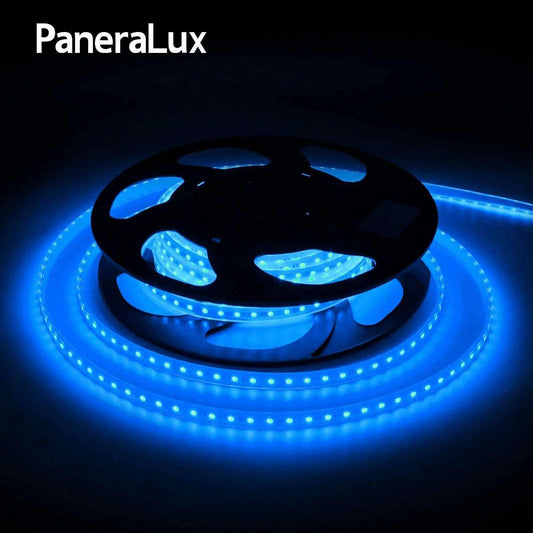Where Can You Place the Lights in a Pool?
When it comes to adding a lighting system to your swimming pool, there are several places where you can position the lights. The placement of the lights will affect how they illuminate the pool. Here are the most common locations where people install pool lights:
Table of Contents:
Above the Water Surface

Many people choose to install lights on the side or top of the pool, particularly for smaller pools. This can be a cost-effective way to light up your swimming pool. However, this method may not produce optimal results for larger pools. Additionally, the lights placed above the water surface only illuminate the water itself and have no effect underwater. Therefore, this option may not be the best choice for a swimming pool.
Floating on the Water

Floating lights for swimming pools offer various advantages and some shortcomings. These lights enhance the ambiance of the pool area, creating a soothing and visually appealing environment. They add elegance and contribute to a relaxing atmosphere, especially during evening or nighttime pool use. Furthermore, floating lights improve safety and visibility, making it easier for swimmers to see the pool's boundaries and any obstacles. They also provide decorative options, as they come in different designs, colors, and patterns. Additionally, floating lights can be used in various water features beyond swimming pools, such as spas, ponds, and fountains, adding a decorative element to outdoor settings. However, they typically provide ambient lighting rather than intense illumination, and if you require brighter lighting for specific activities like swimming laps or pool games, additional lighting sources may be necessary. Some floating lights rely on batteries for power, requiring periodic replacement or recharging, which can be inconvenient and add to ongoing costs. Maintenance is also necessary to ensure their proper functioning, including cleaning, checking for water ingress, and replacing any malfunctioning components. Additionally, they may lack advanced features like remote control or adjustable brightness levels found in other pool lighting options.
Underwater

Installing lights underwater is generally considered the best option for overall pool lighting. Underwater pool lights can illuminate the entire depth of the pool, providing a well-lit environment for swimming. Traditional underwater pool lights are typically bulb-shaped and emit light in a sector, resulting in areas of varying brightness. They often use higher voltage, such as 120V/130V, which may not be the safest for underwater use. Additionally, the energy consumption of these lights can be substantial. However, an alternative option is underwater swimming pool light strips, like the RGB strip pool light you mentioned. These light strips can be installed around the pool wall and are IP68 waterproof, allowing them to stay underwater for extended periods. They eliminate light from 0-180°, providing even illumination that covers both the water surface and the pool bottom. This type of lighting creates a balanced and pleasing effect. It's worth noting that not many brands produce this kind of pool light due to the challenging waterproofing process, but PaneraLux offers this technology.
Ultimately, the placement of pool lights depends on personal preferences, pool size, desired lighting effects, and budget considerations. Consulting with a professional pool contractor can help determine the most suitable lighting solution for your specific pool setup. If you're interested in underwater swimming pool light strips, you can find them at PaneraLux's website: https://paneralux.shop/products/colored-led-pool-lights.
Pool lights
-
PaneraLux Colored Pool Light Strips
Regular price From $199.00 USDRegular priceUnit price per -
PaneraLux LED Pool Lights White and Blue Color
Regular price From $190.00 USDRegular priceUnit price per -
PaneraLux Colored Pool Lights Interconnect
Regular price From $119.00 USDRegular priceUnit price per -
PaneraLux Above Ground Pool Lights
Regular price From $239.00 USDRegular priceUnit price per




